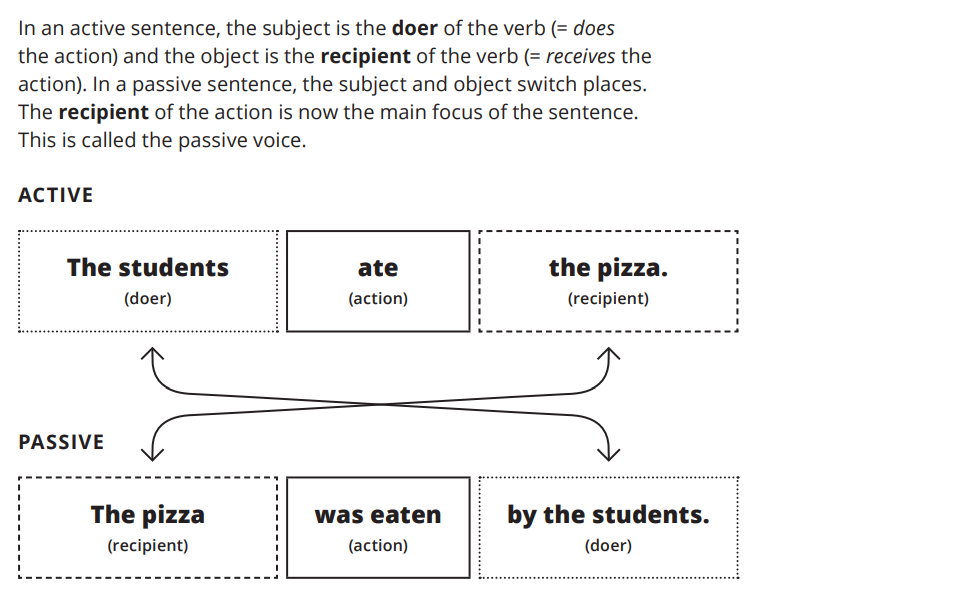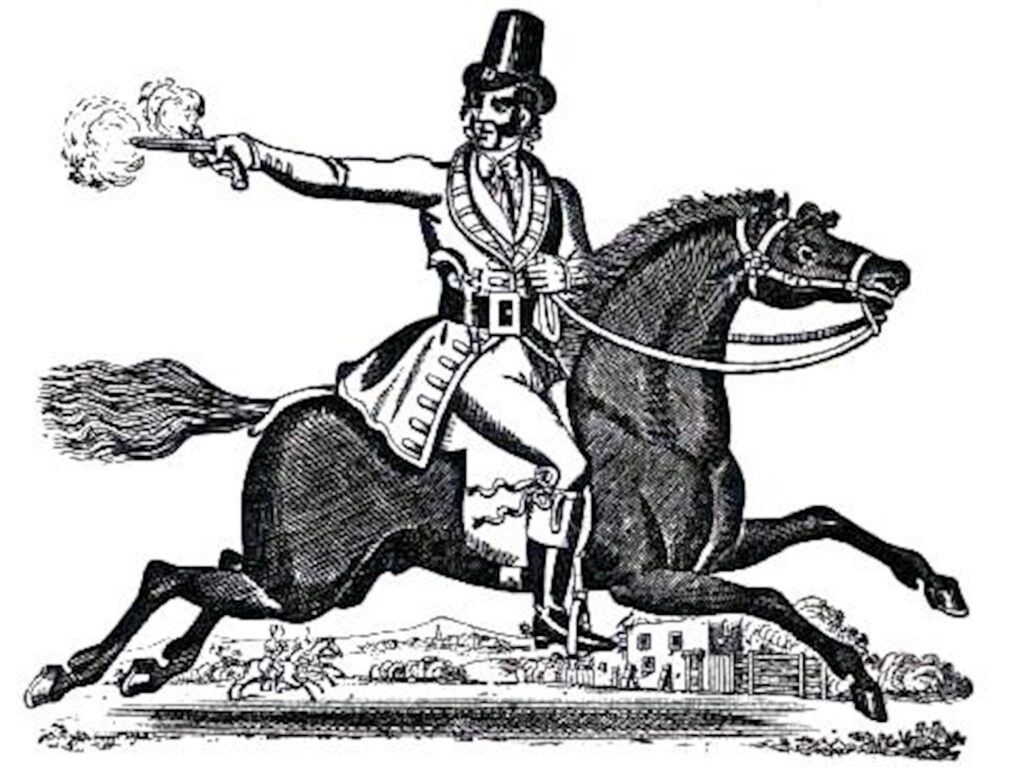Instruções:
Essas aulas de inglês são para alunos intermediários e avançados de inglês como segunda língua. Eles incluem “Ler”, “Ouvir” e “Escrever”. Basta seguir a lição respondendo às perguntas à medida que as encontra. Todas as vagas em negrito devem ser traduzidas para seu próprio idioma para ajudar na compreensão do novo vocabulário.
Richard (Dick) Turpin was an English highwayman whose exploits were romanticised following his execution in York for horse theft.
INTRODUCTION
Georgian highwayman Dick Turpin, like America’s Jessie James or Australia’s Ned Kelly, lives on in our collective imagination more as a myth than as a man. Nearly everything we know about him – or think we know about him – maybe false. He probably didn’t make a midnight ride to York, his faithful horse probably wasn’t named Black Bess, and he probably wasn’t a Robin Hood-like figure.
VOCABULARY: collective-imagination
LISTENING EXERCISE (Watch the video and then answer the questions below).
Watch and listen to the video history of Dick Turpin and then answer the ten questions below.
QUESTIONS:
- What was Dick Turpin’s first job before he became a highwayman?
- What does the word ‘hangin’ mean? How should we pronounce this noun?
- Dick Turpin became a ‘raider’ what is a raider?
- At 3 minutes 19 seconds the reader used a popular English expresssion. ‘the noose was tightening” what does this mean?
- While robbing people in Epping Forest Dick Turpin adopted an alias. What was that alias?

SECTION ONE
Turpin was executed for stealing horses in 1739 at York and he would have been forgotten to history had it not been for Harrison Ainsworth’s popular 1834 novel Rookwood. In it he describes Turpin galloping north in the dark: QUOTE “His blood spins through his veins; winds round his heart; mounts to his brain. Away! Away! He is wild with joy.” The highwayman character etched in Rookwood, as well as local narratives, poems, and ballads that sprung from it, granted Turpin a notorious posthumous status.
VOCABULARY: executed, spins through his veins, etched, narratives, ballads, sprung, granted, notorious, posthumous.

SECTION TWO
The basic facts are simple: He was born in 1705 and became an apprentice butcher; he began stealing and then joined a gang in Essex. He went into burglary as well, and when he was with the Gregory Gang in Essex, the outfit began to strike terror into areas of the county. He had started out as a man whose knowledge of butchery made him useful in cattle stealing, and then he progressed to some nasty criminal acts. With Gregory, the leader of the gang, he robbed a farmhouse and poured boiling water over the owner (an old man) and raped a woman there. His image in contemporary terms was rarely glamourised: he was once depicted in a woodcut throwing an old lady onto a fire. His first murder was of a man named Tom Morris, a servant who recognised him as a robber.
VOCABULARY: apprentice, butcher, stealing, burgulary, strike, terror, cattle, nasty, robbed, farmhouse, boiling water, glamourised, depicted, woodcut
SECTION THREE
Matters stepped up a gear in terms of his infamy and sheer brutality when he joined Tom King, another highway robber; but it seems that Turpin killed his accomplice during a botched robbery. He then fled north. After that, he began to make a living from horse-stealing, and to do this, he stole horses in South Lincolnshire and took them up the Great North Road to sell in East Yorkshire. It was when the Yorkshire connection occurred that he assumed the name of John Palmer.
VOCABULARY: matters, stepped up a gear, infamy, sheer, brutality, accomplice, botched, fled, horse-stealing, stole, South Lincolnshire, East Yorkshire, occured, assumed.

SECTION FOUR
John Palmer was charged for shooting a chicken in the street and threatening to shoot its owner as well. On 23 February 1737 Palmer was identified as outlaw Dick Turpin at York Castle by his former teacher James Smith. Smith recognised Turpin’s handwriting on a letter sent from his cell to his brother-in-law, Pompr Rivernall, in Hempstead. Smith collected a £200 reward for identifying Palmer as Turpin.
VOCABULARY: shooting, threatening, outlaw, York Castle, brother-in-law.
SECTION FIVE
Turpin was feared and reviled while he was alive. The only mourners at his execution on 7 April 1739 were paid ten shillings each by Turpin. He was nearly forgotten after stepping off the hangman’s ladder. Now many years on we are far removed from his evil deeds, and so choose to gloss over them in favour of a more palatable version of historic events – for tourism’s and legend’s sake. Skirting around the historic facts of Turpin’s cruel actions and violent ways, we instead choose to dwell on his outsider personality, romanticise his exploits and admire his rebellious nature.
VOCABULARY: feared, reviled, mourners, execution, shillings, hangman, ladder, evil deeds, to gloss over, palatable, skirting around, cruel, to dwell on, romanticised, exploits, admire, rebellious.
WRITING EXERCISE: Write 150 Words
(To help you with this writing exercise here is an ebook you can download AMAZON DOWNLOAD)
In your writing give your opinion about the glorification of violence. This can be from a small scuffle in a bar, for a world war etc. Violence is violence. And do you think the human race will ever learn how to live in peace?
GRAMMAR TO USE: Use two examples of the ‘passive voice’ in your text. Below is a short reminder.The Active and Passive Voice Lesson
Passive Voice Audio Lesson.




